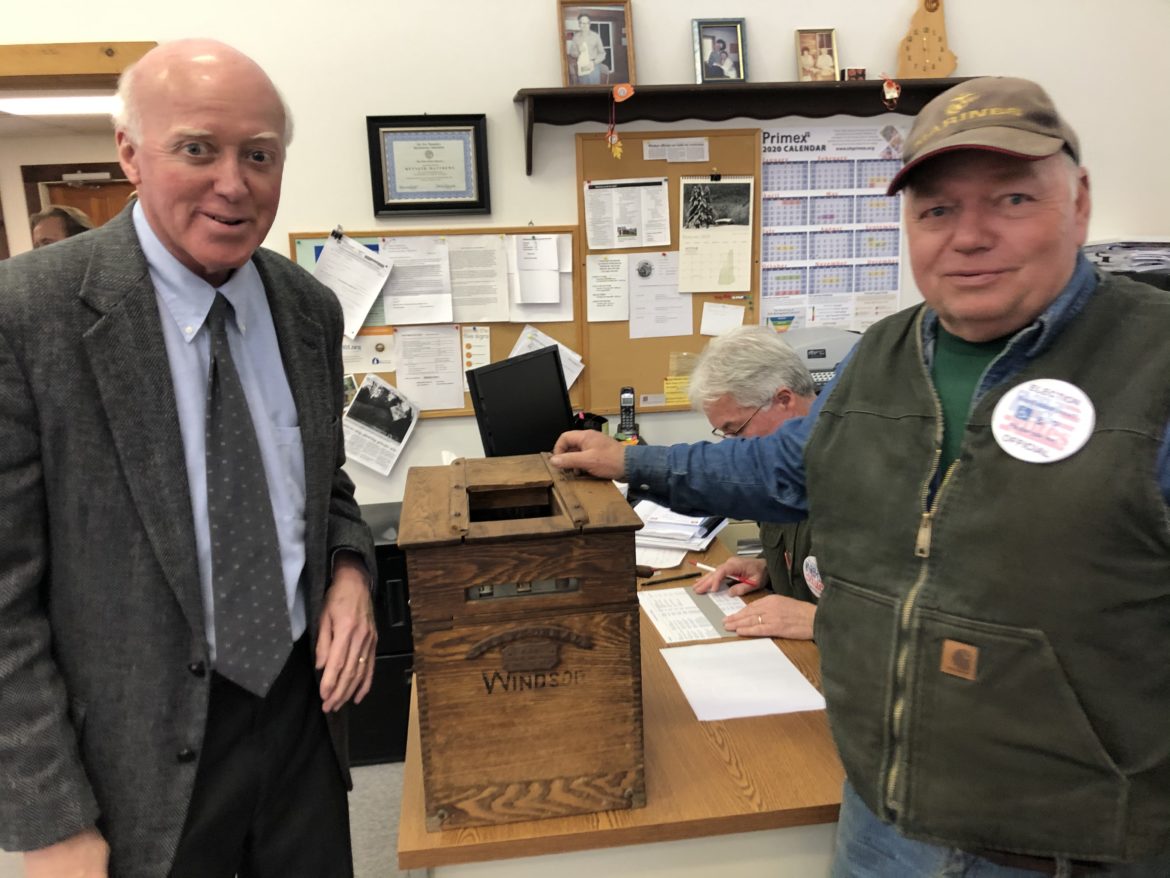By PAULA TRACY, InDepthNH.org
CONCORD – Secretary of State Bill Gardner and UNH pollster Andy Smith are among state leaders who will share ideas about keeping elections safe from cyberattacks on Wednesday, May 27 at 1:30 p.m. on Zoom.
The goal is to educate the public, organizations, campaigns, and election officials how to identify, contain, and manage a crisis caused by those who would like to wreak havoc with the nation’s election system.
“We say our candidate is Democracy,” said Justin Griffin, who has organized leadership panels in at least 14 states.
Griffin said the events involve state leaders, technical experts, election officials, and journalists who cover elections. Each state is very different and Gardner said that a 1990 law requires New Hampshire to have paper ballots as a backup to any machines used.
Griffin said the goal of the initiative is to “take the best practices and give them to election and campaign officials and to fill gaps that may exist.”
To register, visit https://www.eventbrite.com/e/usc-election-cybersecurity-initiative-new-hampshire-workshop-registration-104130328616
To find out more: www.electionsecurity.usc.edu
Griffin, the project’s managing director, has worked on various bipartisan initiatives and has ties to New Hampshire as the grandson of developer Samuel A. Tamposi, and son of communications strategist Pat Griffin and Celina Griffin, a member of the New Hampshire Board of Education. He said the effort kicked off in Maryland and moved to Ohio, Kentucky, Nevada, and Pennsylvania with governors, secretaries of state and other leaders attending an in-person forum.
On the way to Georgia, where a recent poll showed 40 percent of the public does not trust the accuracy of voting, Griffin said he got a text that the pandemic was canceling all public events.
After rearranging flights back to D.C., Griffin said he and Adam Clayton Powell III, the project’s executive director, went to an airport restaurant-bar and started sketching out the framework for the initiative to become virtual, using best in class technology.
Now the initiative has held similar virtual events in Georgia, Arkansas, Virginia, Louisiana, Wyoming, Iowa, Delaware, Montana, and Utah and others.
Gardner said when he was running for re-election he was criticized for not being “more modern” but New Hampshire voters have high trust in the accuracy of their vote and places where they don’t in places like Georgia, which spent most of the $60 million Help America Vote Act money on machines that had no paper trails.
A lack of a paper trail leads to distrust, Gardner stressed.
He said he called Smith after the last presidential election and found that Smith asked the public if they believe in the accuracy of their vote in the state and it got an overwhelmingly positive 99 percent result. A similar question was asked in a poll he administered in 2016 and 2003 which has shown the public has great confidence in election security here.
“But it’s not like that in other places,” he said.
Now more than ever, cybercriminals have a captive audience with everyone turned to their computers.
Going state by state now in virtual sessions on Zoom, the video and audio platform, due to the novel coronavirus, the USC Election Cybersecurity Initiative, supported by funding from Google, will address something that Gardner said is “so universal,” the public’s confidence in their election security.
And he thinks he has a story to tell to help with best practices. The non-partisan initiative plans events in all 50 states prior to the November election, said Griffin. He said the event will provide town clerks, campaign organizers, and the public a look at the situation as it is next Wednesday, as things change from day-to-day.
They will provide a forum to showcase and discuss:
• Cybersafety, the most up-to-date practices in cybersecurity, and how they can be applied to campaigns and elections today.
• Disinformation and Misinformation
• Crisis Communication
While designed for general audiences rather than technical specialists, “our sessions are led by cybersecurity experts from government, industry, research, and academia. They will include simple tools and practices that can help keep our democratic process safe.
“We will present material particularly relevant to anyone associated with campaigns and elections, including candidates, campaign workers, political parties, media and state and local election workers,” the program states.





